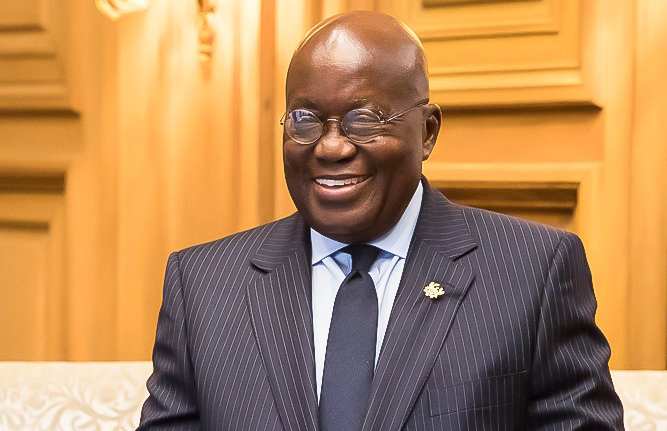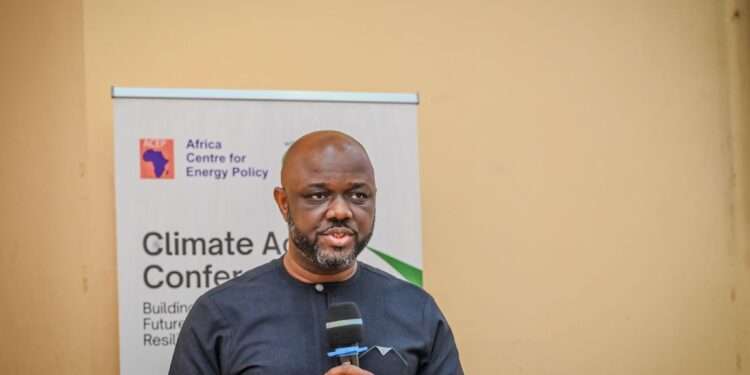The Centre for Public Opinion & Awareness (CenPOA) has formally petitioned the Commission on Human Rights and Administrative Justice (CHRAJ) to investigate former President Nana Addo Dankwa Akufo-Addo over alleged financial mismanagement concerning the National Cathedral project.
The petition, signed by Michael D. Mensah, Executive Director of CenPOA, accused the former president of causing financial loss to the state by utilizing public funds for a project initially presented as a private initiative.
The National Cathedral project was conceived as a personal pledge by Nana Akufo-Addo to God before assuming office. During its announcement, he assured the public that the initiative would be privately funded, alleviating any burden on the national budget.
However, subsequent reports and investigations have revealed that substantial amounts of taxpayer money were funneled into the project without clear accountability.
The project, which remains incomplete despite large financial commitments, has drawn widespread criticism from civil society organizations, opposition parties, and sections of the public.
“The use of state resources to fund a personal religious vow constitutes an abuse of executive power and a blatant disregard for Ghana’s financial well-being.”
Centre for Public Opinion & Awareness (CenPOA)
Furthermore, the petition highlighted concern regarding transparency in the project’s financial management, citing unaccounted expenditures and questionable procurement processes. These concerns, according to CenPOA, underscore the need for a thorough investigation into potential financial mismanagement and corruption.
CenPOA invoked Section 179A of the Criminal Offences Act 29 (1960), which criminalizes acts that cause financial loss to the state. The organization called on CHRAJ to determine whether the former president’s actions fall within this legal framework. The petition specifically requests CHRAJ to examine;
a). The total amount of public funds allocated to the National Cathedral project and the legality of such expenditures.
b). The decision-making process that led to the use of state resources for what was initially declared a privately funded initiative.
c). Whether the actions of the former president amount to causing financial loss to the state under Ghana’s laws.
d). Accountability measures to ensure that those responsible for any mismanagement of public funds face legal consequences.
CenPOA argued that a thorough probe would clarify the extent of the financial loss incurred and whether state officials involved in the project acted within legal boundaries.
The Case for Transparency and Accountability

Meanwhile, transparency and accountability in the management of public resources have been a central concern in Ghana’s democratic governance. The controversy surrounding the National Cathedral is emblematic of broader concerns about the prudent use of state funds. CenPOA insisted that;
“The people of Ghana deserve full transparency regarding the handling of public funds, especially in a matter as significant as this.”
Centre for Public Opinion & Awareness (CenPOA)
The group emphasized that given Ghana’s economic challenges, such financial mismanagement cannot go unexamined. The call for accountability is not limited to CenPOA; various political and civil society organizations have also demanded an audit of the project’s finances.
Public Outcry and the Way Forward
The National Cathedral project has remained one of the most debated issues in Ghana’s political and economic discourse. While supporters argue that it serves a national purpose, critics view it as an unnecessary financial burden, especially in light of Ghana’s economic struggles. The demand for an investigation reflects growing frustration over government spending priorities.
“I trust CHRAJ to carry out an independent and impartial investigation into this issue in the interest of justice and accountability.”
Centre for Public Opinion & Awareness (CenPOA)
The outcome of CHRAJ’s response to this petition could have significant implications for governance and public trust in leadership. If an investigation is launched and wrongdoing is established, it could lead to legal consequences for those involved. Conversely, if CHRAJ finds no basis for the claims, it may quell some of the controversy surrounding the project.
The petition filed by CenPOA against former President Nana Akufo-Addo underscores the need for greater accountability in government spending. The call for an investigation into the National Cathedral project is part of a broader movement demanding transparency in public financial management.
As CHRAJ reviews the petition, Ghanaians await a response that will either confirm or dispel concerns about financial mismanagement. Regardless of the outcome, this case serves as a critical test of Ghana’s commitment to upholding financial accountability and the rule of law.
READ ALSO; Prof. Bokpin Proposes a Recovery Pathway to Ghana’s Debt Crisis





















